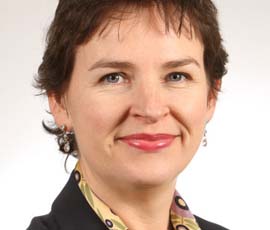Battle launched to save farm wages board

Shadow DEFRA secretary Mary Creagh has launched a campaign to save the Agricultural Wages Board.
Retaining the wages board would protect pay and conditions for England’s farm workers and fruit pickers, she said.
Some 140,000 people in England have their pay set by the board, which also covers holiday, sick pay and overtime.
But it faces abolition under the government’s Public Bodies Bill, which had its Second Reading in the House of Commons on Tuesday (12 July).
Farm workers would see their wages fall if the board was scrapped and the national minimum wage replaced pay settlements, said Ms Creagh.
Workers could lose between £150 and £265 a week in sick pay, she claimed.
The board also sets a minimum wage of £2.98 an hour for school-age children working at weekends or on summer jobs.
But they are not covered by minimum wage legislation.
The campaign is being backed by Unite the Union. Labour has contacted its rural supporters asking them to lobby their MPs to save the board.
Ms Creagh will address thousands of supporters at the Tolpuddle Martyrs Festival, which starts on Friday (15 July).
The three-day festival in Dorset is named after six 19th century farm workers transported to Australia for forming a trade union to protest against low wages.
“Labour is launching the ‘Back the Apple’ campaign to show our commitment to fairness in the countryside,” said Mrs Creagh.
“We want to raise awareness of pay and conditions in the countryside and to head off the Tory-led government’s race to the bottom for rural workers and their families who are feeling the squeeze. These protections ensure that fruit pickers and farm workers get a fair deal.”
The NFU has described the board as an industrial relations relic that acts against the best interests of farmers and farm workers.
It believes abolishing the board would be a welcome relief for farmers who had struggled to cope with its complex wages orders.
“The presence of the board has impacted adversely on the competitiveness of the farming sector” said NFU president Peter Kendall.
Farmers were professional employers who valued their staff. The NFU will work to ensure that members understood their responsibilities as employers.
